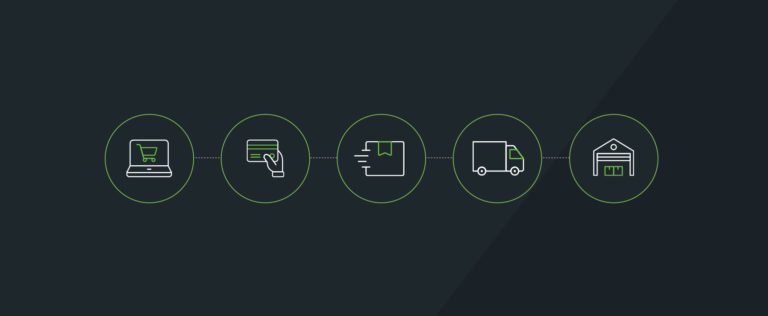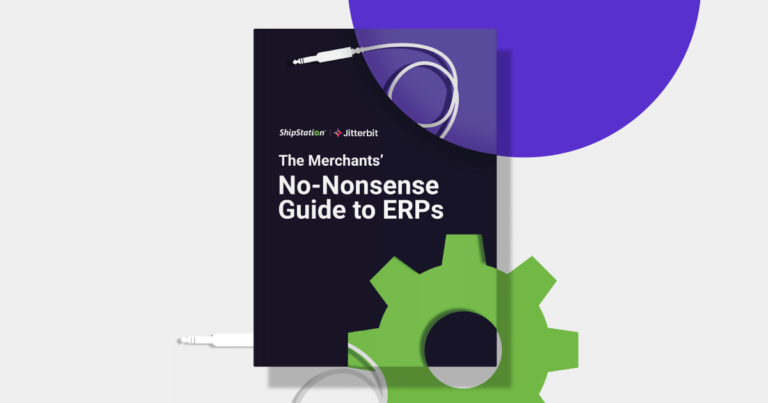Future of Retail: Omni-Channel Success

Retail is evolving. The days of operating brick-and-mortar retail establishments and eCommerce businesses in a silo are coming to an end. To be successful, retailers must focus on providing a seamless experience through a comprehensive omni-channel strategy. The eCommerce experts at ShipStation explain why omni-channel is the future of retail and why it’s important for your business to be everywhere your customers are.
What is omni-channel selling, and is it different from multi-channel retail?
‘Omni’ and ‘multi’ are interchangeable, so what’s the difference?
You can be a multi-channel retailer without being an omni-channel retailer, but you can’t be an omni-channel retailer without being a multi-channel retailer. A multi-channel strategy is at the heart of omni-channel success.
Multi-channel retailing requires serving products to and interacting with customers on multiple platforms. In comparison, omni-channel retailing allows customers to seamlessly swap between platforms and during their shopping experience. Omni-channel retail provides customers with a consistent experience across all platforms instead of operating those platforms individually. The movement towards omni-channel retailing is driven by consumers’ demands for an easier, effortless shopping experience.
Why Omni-Channel Retailing is the Future of Retail
Omni-channel selling provides businesses with several benefits, and perhaps the most significant is its ability to establish and foster long-term relationships with customers. Over the past several years, the move towards more convenient shopping methods has increased. Omni-channel satisfies customers’ desire for shopping convenience whilst providing the exceptional customer experience they expect from retailers they love.
Benefits of omni-channel selling
In addition to convenience and customer experience, businesses can expect further benefits from adopting an omni-channel strategy, including:
Increased brand awareness – Implementing an omni-channel strategy will get your product and brand in front of more customers. It’s the key to being where your customers are when they want to shop and can include online marketplaces, bespoke apps, social media, an eCommerce website and a brick-and-mortar store. An excellent example of an omni-channel experience is a customer finding your business on Instagram. They click on the ‘Visit Shop’ option and add a product to their basket. If they migrate away from the Instagram storefront and later visit your eCommerce website, their item is waiting for them in their basket. This is how you take a multi-channel strategy to the next level.
Higher customer engagement and retention – Providing customers with a seamless shopping experience increases the chance they’ll revisit your store when they need a refill, replacement or to buy something new. To fully foster customer loyalty, it’s essential businesses pair their omni-channel strategy with rock solid customer service. This will keep customers returning time and again.
Enhanced insight into customer behaviour – In the world of eCommerce, data is king. It provides businesses with crucial insight into what customers are interested in and when and how they shop. Omni-channel selling enhances that insight. It allows businesses to track customer behaviour across multiple owned channels, enabling ongoing optimisation.
Boost your target audience – More channels mean reaching more people in your target audience and increasing customer purchases. Additionally, providing customers with an experience they’ll remember is something they’ll tell their friends and family about. Word of mouth is powerful advertising that can boost customer loyalty and brand reputation. In fact, according to Nielsen, 92% of customers believe referrals from their friends and family!
Implementing a Great Omni-Channel Strategy
With all the benefits available to businesses through omni-channel retail, you may be asking how your business can get started. ShipStation’s team of experts have put together a list of tips to help your business implement an omni-channel strategy.
Consistency is key
Building brand awareness is important for your business’s longevity. Before you begin your omni-channel strategy, or even if you already have one in place, it’s important that your tone of voice, messaging and graphics are consistent across everything from your website and social media accounts to your branded in-store merchandise. According to a Visual.ly study, 81% of social media users visited a brand’s website after seeing it advertised. Ensuring your brand is consistent across all sites is key to building customer trust and brand identity.
Data is your best friend
Optimising your customer’s omni-channel journey to suit their needs is a sure-fire way to provide their ultimate shopping experience. Leveraging the data that your cookies provide you is the most efficient way to do this. While analysing data can be time-consuming, the insight you gain from it and the benefits of the changes you make from it are real. A few tips:
- Analyse customer behaviour across all your platforms
- Ensure you’re tailoring your customer experience to different devices
- Make everything for customers as easy as possible, from finding the products they need to recommending ones that are similar to previous purchases
Increase automation
Trying to manage multiple channels can be challenging. Implementing automation will help improve efficiency across your business. From managing stock across all platforms to order fulfilment and delivery, a wide range of tools are available to automate manual tasks, giving your teams more time to focus on business-critical tasks.
How can ShipStation help?
ShipStation is passionate about helping omni-channel retailers reach their goals. Designed to help businesses focus on their customers, ShipStation’s software makes order fulfilment and delivery effortless. Automatically import orders, effortlessly connect your selling channels and integrate with over 100 different online marketplaces, stores and carts. For more information, contact the team at ShipStation.


